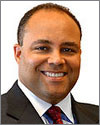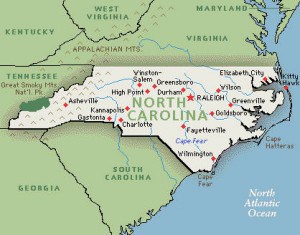 Commercial providers and their pals in the legislature will go to any length — even lie — to protect their cozy duopoly, charging high rates for poor quality service.
Commercial providers and their pals in the legislature will go to any length — even lie — to protect their cozy duopoly, charging high rates for poor quality service.
That fact of life has been proven once again in the state of Tennessee, where an effort to expand EPB Fiber — a community owned fiber network — to nearby communities outside of Chattanooga, was killed thanks to a lobbying blitzkrieg by Big Telecom interests.
The “Broadband Infrastructure for Regional Economic Development Act of 2011,” supported by chief sponsor House Majority Leader Gerald McCormick, (R-Chattanooga), is dead after telecom industry lobbyists unleashed a full court press to stop the legislation from passing into Tennessee law.
The bill would have permitted EPB and five other municipal electric services that have or are developing broadband infrastructure to expand service up to 30 miles outside of their service area, where appropriate, to meet the needs of businesses or consumers.
With the legislation, EPB could bring its 1 gigabit fiber broadband service to Bradley County, home to a future Amazon.com distribution center. Amazon already operates a huge warehouse in Hamilton County, where it was able to obtain EPB’s super-fast broadband service. According to Harold DePriest, EPB President and CEO, Chattanooga’s fiber network is helping sell the city as a high-tech mecca for business, where broadband connectivity is never a problem.
DePriest says EPB’s network has been a proven job-creator, and Amazon.com’s ongoing expansion in the region is just one example.
Chattanooga residents and businesses now have the fastest broadband service in the southern United States, at prices often far less than what the competition charges. Expanding EPB’s success to other parts of Tennessee represents a major threat to the likes of Comcast and AT&T, the state’s dominant telecom companies.

EPB provides municipal power, broadband, television, and telephone service for residents in Chattanooga, Tennessee
Lobbyists fought the bill off with some whopper tall tales about the “horrors” of community broadband.
Some Republican lawmakers friendly to Comcast and AT&T’s point of view have bent their philosophical positions on government and regulation into logic pretzels. One has even called for EPB to be regulated by Tennessee’s Regulatory Authority, a body many state Republicans feel is about as helpful as a tax increase.
Despite that, there was Rep. Curry Todd (R-Collierville) at a recent hearing telling fellow lawmakers EPB and other community providers should be regulated by the TRA to protect ratepayers from the “loss of tremendous amounts of money coming out of taxpayers’ pockets.”
Does Todd think Comcast and AT&T should also be regulated? Of course not. Nobody should protect consumers from AT&T’s and Comcast’s relentless rate hikes. Todd cannot even get his facts straight.
After 19 months, EPB has 25,500 customers — far ahead of its projections, and is well ahead of its financial plan, according to DePriest. So much for being a “financial failure.”

Rep. Curry Todd has trouble with the facts, but has no problem counting campaign contributions amounting to more than $12,000 from Comcast, AT&T, the state cable lobby and other telecom companies
On cue, the same cable industry that tried to sue EPB Fiber out of existence is now comparing the Chattanooga fiber network to Memphis Networx, a disastrous effort by that city to build a public-private wholesale fiber optic network only business and institutions could directly access. It’s hard to earn critical revenue from consumers when you run a wholesale network. Even harder when you build it just before the dot.com crash.
EPB sells its service directly to business and consumers, so it gets to keep the revenue it earns, paying back bondholders and delivering earning power.
Stop the Cap! reader John Lenoir notes some of the local tea party groups are also being encouraged to oppose EPB’s efforts to expand.
“Just as Americans for (Corporate) Prosperity is lying about North Carolina’s community broadband, these corporate front groups are also engaged in demagoguery over EPB in Tennessee,” Lenoir says. “In addition to the usual claims EPB represents ‘socialism,’ the locals are also being told EPB wants to use their fiber network to run smart meters, which some of these people suspect are spying on them or will tell people when they can and can’t use their electric appliances.”
Lenoir in unimpressed with the telecom industry arguments.
“AT&T’s opposition is downright laughable, considering this company raised its rates on U-verse and will slap usage limits on every broadband customer in a few weeks,” Lenoir adds. “We thank God EPB is here because it means we can tell AT&T to stick their usage limits and Comcast can take their overpriced (and usage limited) broadband somewhere else.”
Lenoir thinks EPB should embarrass both AT&T and Comcast, but since neither company feels any shame in his view, it’s more about business reality.
“Why do business with AT&T or Comcast and their gouging ways when you can sign up for something far better and support the local community,” Lenoir asks.
AT&T spokesman Chris Walker complains that the phone company is somehow faced with an unlevel playing field in Tennessee, despite the legislature’s repeated acquiescence to nearly every AT&T-sponsored deregulatory initiative brought before it. The company wants a “level playing-field” statute like the very-provider-friendly (it should be — it was written by them) one currently before the North Carolina state Senate.
Comcast questions whether anyone needs 1 gigabit service, but the cable company’s Chattanooga vice president and general manager Jim Weigert told the Times Free Press it could deliver 1 gigabit service… to business customers… assuming any asked.
DePriest questions that, noting Comcast tops out its broadband service at 105Mbps, and only for downstream speeds. Comcast upload speeds top out at 5Mbps. EPB can deliver the same upstream and downstream speeds to customers and do it today.


 Subscribe
Subscribe














